FOMO in the Digital Age: Islamic Insights on Mental Well-being and Spiritual Balance
FOMO (Fear of Missing Out) has emerged as one of the most pervasive psychological phenomena in this digitally connected era, affecting people across cultures and religious orientations. This research specifically explores FOMO within Islamic contexts, examining its psychological aspects and faith-based approaches toward mental well-being. Understanding the demands of modern life in a way that does not compromise religious tenets is crucial for maintaining psychological health and spiritual balance among Muslims.
The rapid rise in technology usage and the dominance of social media have created an environment where individuals are constantly exposed to the achievements and activities of others. This exposure, while fostering an unprecedented level of connection, also generates feelings of inadequacy and a fear of being left behind. For Muslims, this challenge is further compounded by the need to balance religious obligations, spiritual growth, and the demands of contemporary life.
This paper, therefore, aims to provide a detailed analysis of FOMO from an Islamic perspective, delving into its psychological underpinnings, religious implications, and practical strategies for mitigation. We present a comprehensive framework for addressing FOMO, integrating Islamic teachings with modern psychological approaches to foster understanding and promote mental well-being among Muslim individuals and communities globally.
FOMO and the Modern World: An Understanding
FOMO, an acronym for Fear of Missing Out, can best be understood as the pervasive apprehension that others might be engaging in rewarding experiences from which one is absent. This state of social anxiety is characterised by the desire to remain continually connected to what others are doing. The term was first introduced in the early 2000s but gained widespread usage in parallel with the rise of social media and constant digital connectivity.
FOMO is rooted in basic human needs: social connection and a sense of belonging. The digital revolution has amplified these tendencies, creating an environment of continuous comparison and perceived inadequacy.
Several key theories within psychology provide the conceptual foundations for understanding FOMO:
- Social Comparison Theory: This theory posits that people assess their own worth based on how they compare to others, particularly on social media, where idealised and often unattainable lifestyles are presented. This constant comparison can intensify feelings of inadequacy, driving FOMO.
- Self-Determination Theory: Self-Determination Theory (SDT) focuses on basic psychological needs: autonomy, competence, and relatedness. FOMO stems from the need for relatedness—the desire to feel connected to others. When individuals see others engaging in activities without them, it can trigger a sense of social exclusion, enhancing FOMO.
- Cognitive Behavioural Theory: Cognitive Behavioral Theory (CBT) explains how thoughts and beliefs influence emotions and behaviours. In the case of FOMO, individuals may have irrational beliefs (e.g., "If I miss this event, I will be less valued or miss out on something life-changing"). These thoughts lead to anxiety, which can perpetuate behaviours like compulsive checking of social media, reinforcing the cycle.
- Attachment Theory: Attachment Theory suggests that early attachment experiences shape individuals' sense of security in relationships. People with insecure attachment styles (e.g., anxious attachment) are more likely to experience FOMO, as they may be more sensitive to social exclusion or fear of being left out.
The widespread adoption of smartphones and social media platforms has further fueled FOMO. The constant stream of curated, filtered snapshots of others' lives can magnify feelings of inadequacy and the perception of being left behind. This digital environment presents specific challenges for individuals striving to maintain a balanced life in accordance with religious principles.
Social media algorithms are often designed to maximise user engagement, prioritising content that triggers emotional and impulsive responses, including FOMO. The addictive nature of these platforms, coupled with the dopamine rushes associated with likes, comments, and shares, creates a potent psychological cycle that is difficult to resist.
Although FOMO is recognised as a global phenomenon, its expression and intensity can vary across cultures. In collectivist societies—such as many Muslim-majority countries—FOMO may be heightened due to the stronger social pressures and the value placed on community participation. However, the Islamic emphasis on family and community involvement may also serve as a protective factor against some aspects of FOMO, helping to mitigate its negative effects.
Implications of FOMO in Islamic Contexts
FOMO can significantly interfere with religious obligations and spiritual growth. One major area of concern is the impact on ṣalāh (prayer). The constant urge to check devices or the mental distraction of missing out on events can greatly reduce khushūʿ (concentration) during prayer and other forms of ʿibādah like reciting the Qur'ān. Beyond individual worship, FOMO can also diminish participation in communal religious activities, as concerns about missing social events may lead to lower attendance at religious congregations and classes. Furthermore, the overwhelming time and mental energy consumed by FOMO may result in neglect of additional acts of worship, such as nāfilah (voluntary) prayers, as there is often little time or focus left to engage in further ʿibādah.
The psychological impact of FOMO is multifaceted. It can lead to anxiety and depression, as continuous comparison with others fosters feelings of inadequacy that may ultimately develop into clinical mental health issues. This constant exposure to the highlight reels of others' lives on social media often erodes self-esteem and can generate deep-seated feelings of unworthiness. FOMO also complicates the balance between work, life, and faith, pulling individuals in multiple directions and making it difficult to prioritise important aspects of life. This difficulty is exacerbated by sleeping disturbances, as the compulsion to stay connected disrupts healthy sleep patterns, affecting mental and physical well-being over time. FOMO also places a heavy cognitive load on individuals, leading to decision fatigue and reduced cognitive functionality due to the overwhelming amount of information and choices encountered daily.
FOMO can have a significant impact on ʿasabiyyah (social cohesion) within Muslim communities, straining social and familial bonds. One key consequence is the reduction of quality time spent with family. The constant feeling of needing to be present everywhere and engaging in every possible activity often detracts from fulfilling family obligations, which are a central aspect of Islamic upbringing. Additionally, FOMO can create comparison-driven problems within friendships, amplifying feelings of envy and resentment. This fear-driven comparison contradicts the Islamic principles of ukhuwwah (brotherhood), emphasising mutual support and affection.
Moreover, the pressure to fit in on social media can lead individuals to compromise on proper Islamic etiquette in their social conduct. Behaviours driven by the desire for social approval may conflict with Islamic values of modesty and decorum. This tension between online behaviour and Islamic manners can erode personal integrity. Paradoxically, while social media promises enhanced connectivity, excessive use of these platforms driven by FOMO can lead to social isolation and weakened community ties in the real world. As individuals spend more time online, their bonds with the local community may diminish, further exacerbating the challenges of maintaining strong, cohesive social networks.
In short, FOMO can significantly impact a Muslim's spirituality. The obsession with worldly experiences can slowly weaken īmān (faith), leading to neglect of religious duties as time and energy are consumed by the pursuit of worldly connections. This attachment to the dunyā fosters materialism, drawing individuals further into seeking possessions and experiences rather than focusing on the ākhirah (hereafter).
Actions driven by FOMO often lack barakah (blessing), as they are devoid of mindful intention, a key element in Islamic tradition that brings divine blessing. Moreover, the constant craving for new experiences can lead to spiritual emptiness, where fleeting gratifications fail to provide lasting contentment, disconnecting individuals from deeper spiritual fulfilment.
Islamic Perspectives on FOMO
Islam places great emphasis on qana'ah (contentment) and tawakkul (trust in the plan of Allah). The Qur'an states, "And Allah is the best of providers" (Surah Al-Jumu'ah 62:11), encouraging satisfaction with what one has been granted. This principle is a powerful remedy against the comparative mindset driven by desire, which often triggers FOMO.
Additionally, the Qur'an guides: "And do not extend your eyes toward that by which We have given enjoyment to various groups of them, [as] the splendor of worldly life by which We test them. And the provision of your Lord is better and more enduring" (Surah Ta-Ha 20:131). This ayah addresses the problem of envy—both social-psychological and spiritual—and refocuses the believer on the eternal rewards of the hereafter rather than the fleeting pleasures of this world.
The hadith literature provides guidance on how to avoid destructive comparisons. The Prophet Muhammad (peace and blessings be upon him) said: "Look at those who are below you and do not look at those who are above you, for it is more appropriate that you do not belittle the blessings of Allah" (Sahih Muslim). This hadith promotes gratitude and perspective, counteracting the upward social comparison that often fuels FOMO.
Another related hadith states: "Wealth is not in having many possessions. True wealth is the richness of the self" (Sahih al-Bukhari). This wisdom emphasises the development of inner contentment, as opposed to material accumulation or the pursuit of external experiences, which directly conflicts with the essence of FOMO.
The ethical use of social media has been a central topic of discussion among Islamic scholars. They encourage Muslims to use these platforms for good while being mindful of the potential negative impacts on īmān and health.
Critical ethical concerns include avoiding the spread of misinformation or fitnah, safeguarding digital privacy and modesty, using time productively rather than in idleness, and protecting oneself from exposure to harām content. Scholars urge Muslims to observe ḥayāʾ (modesty), a principle that applies even to online conduct. Excessive posting or constantly updating personal experiences with the intention of seeking likes and comments on social media can be seen as contrary to this vital Islamic principle.
An essential Islamic principle for combating FOMO is zuhd. Zuhd is commonly translated as asceticism or detachment from worldly life. However, it does not mean renouncing worldly pleasures altogether; rather, it calls for these pleasures not to capture the heart or distract from spiritual pursuits.
In the context of FOMO, zuhd teaches Muslims to refrain from constantly seeking new experiences or material possessions, instead focusing on inner enrichment and nurturing a strong connection with Allah.
Faith-Based Solutions for FOMO
Mindfulness in Islam and the Present Moment
Islam emphasises the importance of living in the present, a principle that counters the scattered attention often associated with FOMO. The khushūʿ (focus) during ṣalāh (prayer) serves as a powerful exercise in mindfulness, helping individuals stay grounded in the present. Similarly, mindful eating during Ramadan, particularly at iftār when everyone is fully present, can be extended into daily life as a practice in awareness. Furthermore, engaging in dhikr (remembrance of Allah) ensures that no moment passes without spiritual reflection, anchoring one in the now.
This should be applied in the use of technology, where individuals make a conscious niyyah (intention) before using devices or checking social media. Establishing digital-free spaces, especially in prayer areas, helps preserve sanctity and focus. Incorporating mindfulness breathing exercises, possibly during the daily prayers, further supports staying present and spiritually connected.
Gratitude Practice in the Islamic Context
Developing gratitude (shukr) is a powerful antidote to FOMO. Incorporating daily gratitude supplications into one's routine, such as traditional duʿās of thanksgiving, helps cultivate a sense of appreciation. Regular reflection on ni'mah (the blessings of Allah), no matter how big or small, reinforces awareness of divine favours. Additionally, riḍā (contentment) with Allah's decree encourages acceptance of one's circumstances as part of His divine will.
Practical applications include Islamic gratitude journaling, where individuals document their daily blessings from an Islamic perspective. Family discussions centred around gratitude and contentment can also reinforce these values. Furthermore, using social media with a sense of gratitude—rather than for comparison or self-promotion—can shift the focus towards appreciation instead of envy.
Principles of Islamic Time Management
FOMO can be effectively managed through Islamic principles of time management. A key aspect is activity prioritisation, where individuals assess their daily actions based on their benefit for the ākhirah (hereafter). Structuring the day around prayer times provides a natural rhythm and anchor, guiding time management with an Islamic focus. Additionally, applying the principle of wasatiyyah (balance) ensures a harmonious integration of dunyā (worldly life) and religious pursuits.
In practical terms, using Islamic productivity tools helps align daily tasks with spiritual priorities. Periodic time audits from an Islamic perspective allow individuals to review how they spend their time in light of their faith. Prioritising barakah (blessing) encourages individuals to focus more on activities that bring spiritual and practical benefits, ensuring their time is spent meaningfully.
Community Engagement and Support
Strengthening relationships among Muslims and fostering support can significantly help in combating FOMO. Regularly attending the mosque, including congregational prayers and community events, cultivates a strong sense of belonging. Additionally, participating in Islamic study circles not only builds knowledge but also strengthens social connections through group learning. Engaging in community service projects shifts one's focus outward, providing a broader perspective on life by helping others.
Practical applications include forming or joining Muslim support groups that promote an Islamic approach to FOMO and digital well-being. Organising community-wide initiatives, such as digital detox or gratitude challenges, can further support this goal. Moreover, intergenerational mentoring, where young Muslims connect with elders, provides valuable wisdom and insights, offering a broader perspective on life and contentment.
Islamic Cognitive Restructuring
Islamic principles offer effective interventions for reshaping thought patterns, particularly in combatting FOMO. Comparative thinking is reframed from the Islamic perspective, shifting from worldly comparisons to a focus on spiritual betterment. Emphasis on personal growth and self-improvement is rooted in the principles of tazkiyah (purification of the soul), guiding individuals towards spiritual development. Additionally, Islam's view of dunyā as transient reinforces the understanding that worldly experiences are fleeting and not the ultimate goal.
Practical applications include adapting Cognitive Behavioral Therapy (CBT) techniques to incorporate Islamic teachings. Exercises in Islamic CBT can help reshape negative thinking patterns with a spiritual focus. Using Qur'ānic verses as positive affirmations can provide powerful tools for overcoming negative thoughts associated with FOMO. Moreover, reflecting on the lives of prophets and companions offers valuable examples of contentment, purpose, and balance in life.
Digital Detox—The Islamic Way
Digital detox practices can be adapted to align with an Islamic lifestyle, promoting a healthier balance between technology use and spiritual well-being. One such practice is establishing device-free times during acts of worship, creating no-tech zones during ṣalāh (prayer) and when reading the Qur'ān. Similarly, the concept of fasting in Ramadan can be extended to include a "social media fast," abstaining from social media to focus more on spiritual growth. Additionally, designating tech-free zones in the home, particularly in areas reserved for prayer, helps maintain sacred spaces free from digital distractions.
Other strategies include implementing a "digital sunset" after the Maghrib prayer limiting screen time in the evening to enhance quality sleep and family time. App blockers can be used during key Islamic dates, such as Eid or Jumu'ah, to prevent distractions. Lastly, periodic "digital retreats" inspired by i'tikāf (spiritual retreat) encourage long stretches of disconnection from technology, emulating the practice of retreat in the masjid for spiritual rejuvenation.
Increasing Spiritual Connection
Strengthening one's relationship with Allah is a powerful way to counteract FOMO. One key practice is increasing voluntary prayers (nāfilah), dedicating time to additional acts of worship in the pursuit of Allah's pleasure. Regular study of the Qur'ān, accompanied by contemplation, deepens understanding and provides guidance, helping to attain a broader perspective on life. Additionally, gaining knowledge through Islamic history and the teachings of prophets and scholars serves as a reminder of the contentment and focus that shaped their lives.
Other practices that aid in spiritual growth include setting a personal spiritual development plan with specific goals related to religious knowledge and practice. Engaging in muḥāsabah (self-reflection) helps to regularly assess one's deeds and intentions, ensuring focus on spiritual progress. Participation in dhikr circles, where one joins group sessions of remembrance, fosters both community bonds and spiritual unity, further strengthening one's connection to Allah.
Mindful Social Media Consumption
Mindful engagement with social media can be achieved by applying Islamic principles to online behaviour. Before logging in, one should take a moment to reflect on their intention, ensuring it aligns with a purposeful use of time. Filling social media feeds with inspirational Islamic content—by following pages that share uplifting Islamic teachings—can transform the experience into one of spiritual enrichment. Limiting excessive use and employing time fruitfully is also essential, as it prevents overindulgence in digital distractions.
Applying the Islamic principle of ḥayāʾ (modesty) in online conduct encourages mindful posting and behaviour on social platforms. Additionally, practising "digital zakāh" involves using a portion of time online to spread beneficial knowledge or assist others, thus aligning social media use with Islamic values. Finally, establishing a personal mission statement for social media participation—guided by Islamic tenets—helps set clear boundaries and ensures that engagement remains purposeful and spiritually beneficial.
Building Real Relationships
Cultivating authentic relationships within the ummah requires a focus on face-to-face interactions over virtual connections. Intentional efforts to schedule in-person meetings for both social and religious activities help strengthen real-world bonds. Regular attendance at Islamic community events and gatherings fosters a network beyond the digital realm, encouraging deeper connections. Seeking mentorship from knowledgeable community members, such as elders or scholars, provides guidance and companionship, enriching one's personal and spiritual development.
Other ways to build genuine relationships include initiating a regular Islamic book club or group study, which creates opportunities for meaningful discussions and shared learning. Engaging in collaborative community service projects also fosters bonds through a shared sense of purpose. Active listening during conversations ensures a focused and present interaction, counterbalancing the distractions often caused by FOMO.
Conclusion
FOMO presents a sophisticated challenge for Muslims striving to maintain faith in a modern environment. Research highlights its multifaceted nature and implications for individuals and societies. Islamic teachings, particularly qana'ah (contentment), tawakkul (trust in Allah), and prioritising spirituality over materialism, offer a solid foundation for combating FOMO. The prophetic traditions provide practical advice on avoiding harmful comparisons and fostering inner contentment.
FOMO impacts religious practice, mental health, social relationships, and spiritual well-being. However, faith-based approaches, such as mindfulness rooted in Islamic tradition and gratitude practices like shukr, provide effective mitigation strategies. Tools like Islamic digital detoxes and mindful social media use can help Muslims connect with their communities and overcome FOMO. Time management and Islamic ethics further offer a balanced approach to navigating the digital age without compromising faith or well-being.
--------------------------------------------
About the Author:
Muhammad Sinan is a second-year undergraduate student in the Department of Civilizational Studies at Shihab Thangal Islamic College, Vakery, Wayanad, Kerala, India. He hails from Mananthavady, Wayanad.
The article is edited by Faisal Niyaz Hudawi.
-------------------------------------------
References :
- Islamic Teachings on Contentment and Trust in God's Plan
- The Qur'an:
- Surah Al-Baqarah (2:286): "Allah does not burden a soul beyond that it can bear..." – This verse emphasises the notion that believers should trust in Allah's wisdom, which can reduce the anxiety associated with FOMO.
- Surah An-Nahl (16:97): "Whoever does righteousness, whether male or female, while being a believer - We will surely cause him to live a good life..." – Encourages contentment and finding peace in living a righteous life, regardless of worldly circumstances.
- Surah Al-Isra (17:19): "Whoever desires the Hereafter and exerts the effort due to it while he is a believer - it is those whose effort is ever appreciated [by Allah]." – A reminder that focusing on the afterlife reduces worldly distractions and the fear of missing out.
- Hadith Literature
- Prophet Muhammad's (PBUH) Teachings:
- "Look at those below you and do not look at those above you, for this is more likely to prevent you from belittling the blessings that Allah has given you." (Sahih Muslim, Book 42, Hadith 7070) – Directly addresses how comparing oneself to others can create anxiety, similar to modern FOMO, and how focusing on one's own blessings cultivates gratitude.
- Psychological Studies on FOMO
- Przybylski, A. K., Murayama, K., DeHaan, C. R., & Gladwell, V. (2013). Motivational, emotional, and behavioural correlates of fear of missing out. Computers in Human Behavior, 29(4), 1841–1848. – This study offers an empirical understanding of FOMO, focusing on how it is linked to social media use, anxiety, and emotional well-being.
- Baker, Z. G., Krieger, H., & LeRoy, A. S. (2016). Fear of missing out: Relationships with depression, mindfulness, and physical symptoms. Translational Issues in Psychological Science, 2(3), 275–282. – Examines the connection between FOMO, depression, and mindfulness, suggesting that mindfulness practices, which align with Islamic spiritual practices, can help alleviate FOMO.
- Islamic Psychology and Mental Health Approaches
- Abu-Raiya, H. & Pargament, K. I. (2010). Empirically based psychology of Islam: Summary and critique of the literature. Mental Health, Religion & Culture, 13(1), 93–115. – Provides a review of how Islamic beliefs can be incorporated into mental health interventions, highlighting how faith can alleviate psychological issues like FOMO.
- Rothman, A. & Coyle, A. (2018). Toward a framework for Islamic psychology and psychotherapy: An Islamic model of the soul. Journal of Religion and Health, 57(1), 1731–1744. – Explores the relationship between Islamic beliefs and psychological well-being, emphasising how Islamic spiritual practices can foster mental health.
- Contemporary Islamic Thought on Social Media and Well-being
- Yousef, T. (2020). Social Media, FOMO, and Islamic Values: A Case Study on University Students in the Middle East. – This study addresses the conflict between modern phenomena like FOMO and traditional Islamic values of contentment (qana'ah) and patience (sabr).
- Iqbal, A. (2021). Islamic Mindfulness: A Remedy for Modern Anxiety and FOMO. – This article delves into how Islamic mindfulness practices, such as dhikr (remembrance of Allah), can serve as spiritual tools for managing anxiety and FOMO.
Disclaimer
The views expressed in this article are the author’s own and do not necessarily mirror Islamonweb’s editorial stance.

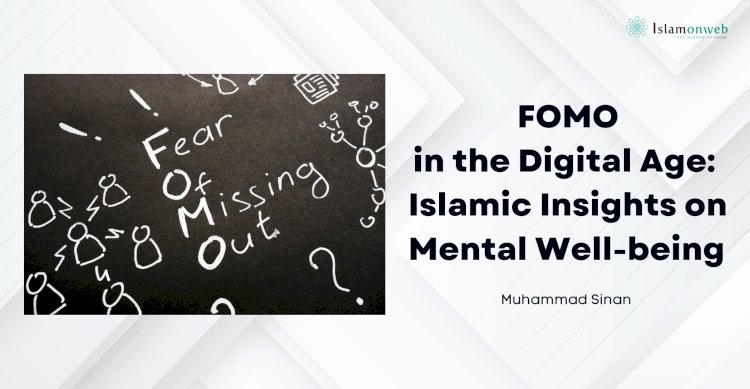


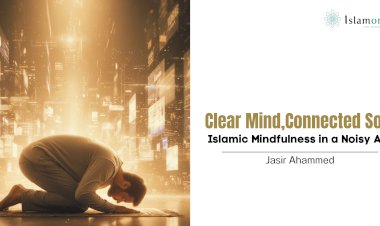
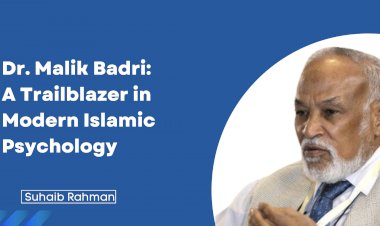

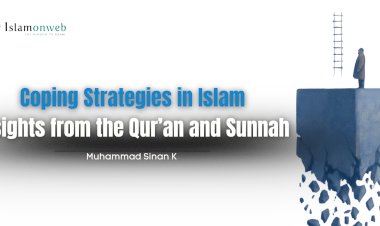
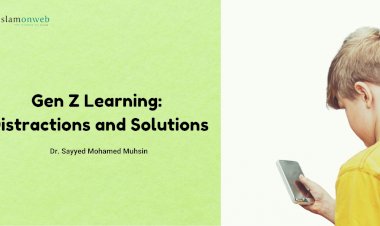















Leave A Comment